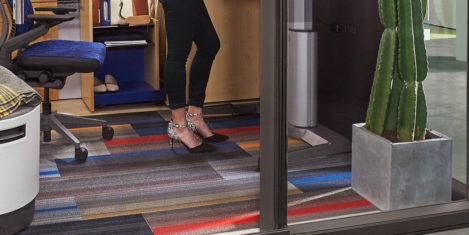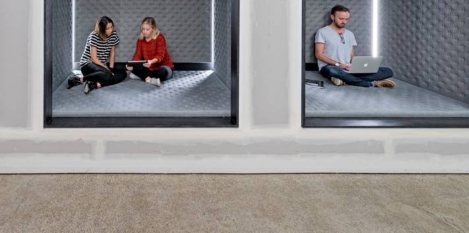To provide the best experiences, we use technologies like cookies to store and/or access device information. Consenting to these technologies will allow us to process data such as browsing behaviour or unique IDs on this site. Not consenting or withdrawing consent, may adversely affect certain features and functions.
The technical storage or access is strictly necessary for the legitimate purpose of enabling the use of a specific service explicitly requested by the subscriber or user, or for the sole purpose of carrying out the transmission of a communication over an electronic communications network.
The technical storage or access is necessary for the legitimate purpose of storing preferences that are not requested by the subscriber or user.
The technical storage or access that is used exclusively for statistical purposes.
The technical storage or access that is used exclusively for anonymous statistical purposes. Without a subpoena, voluntary compliance on the part of your Internet Service Provider, or additional records from a third party, information stored or retrieved for this purpose alone cannot usually be used to identify you.
The technical storage or access is required to create user profiles to send advertising, or to track the user on a website or across several websites for similar marketing purposes.
 A new official report has highlighted the increasing number of people who are having to balance caring for family members with their own working commitments. Catherine Foot, the Director of Evidence for the Centre for Ageing Better, responded to these statistics by calling for legislation to promote flexible working among older workers. Published by the Office for National Statistics, the report has found that one in four older female workers, and one in eight older male workers, have care responsibilities.
A new official report has highlighted the increasing number of people who are having to balance caring for family members with their own working commitments. Catherine Foot, the Director of Evidence for the Centre for Ageing Better, responded to these statistics by calling for legislation to promote flexible working among older workers. Published by the Office for National Statistics, the report has found that one in four older female workers, and one in eight older male workers, have care responsibilities.














 We might think that an inability to absorb the vast amount of information generated by our fellow humans and their machines is something of a modern phenomenon, but we’ve always known we can have too much of this particular good thing. Distringit librorum multitude, wrote Seneca in the First Century. An abundance of books is a distraction.
We might think that an inability to absorb the vast amount of information generated by our fellow humans and their machines is something of a modern phenomenon, but we’ve always known we can have too much of this particular good thing. Distringit librorum multitude, wrote Seneca in the First Century. An abundance of books is a distraction.
 The volume of transactions in London’s West End was down 45 percent, the lowest for January in over 10 years. This is to be expected with the continued ongoing Brexit negotiations, according to Savill’s, who expect to see a lower volume of transactions complete over the first quarter of this year. Despite this, space under offer still remains well above the long-term average, with 237,000 sq ft going under offer during the month. This held the overall total at just over 1.2m sq ft, giving a strong indication that leasing activity over the course of 2019 will remain robust. Pre-lets accounted for 42 percent of the overall sq ft let in January and there were five transactions to the Insurance & Financial sector and four to the Tech & Media sector.
The volume of transactions in London’s West End was down 45 percent, the lowest for January in over 10 years. This is to be expected with the continued ongoing Brexit negotiations, according to Savill’s, who expect to see a lower volume of transactions complete over the first quarter of this year. Despite this, space under offer still remains well above the long-term average, with 237,000 sq ft going under offer during the month. This held the overall total at just over 1.2m sq ft, giving a strong indication that leasing activity over the course of 2019 will remain robust. Pre-lets accounted for 42 percent of the overall sq ft let in January and there were five transactions to the Insurance & Financial sector and four to the Tech & Media sector.















March 15, 2019
When exactly did busyness become a sign of status?
by Francesca Langton Kendall • Comment, Wellbeing
(more…)